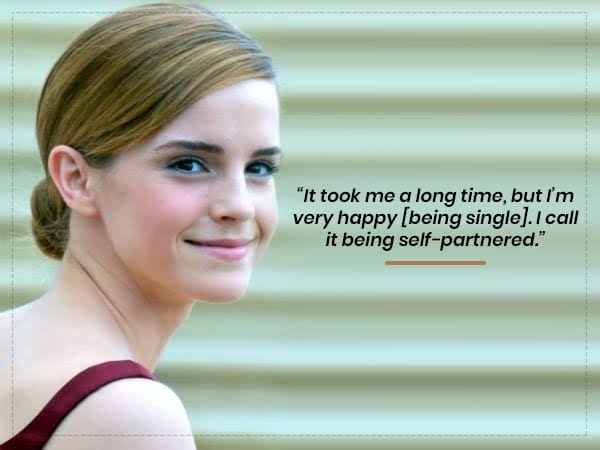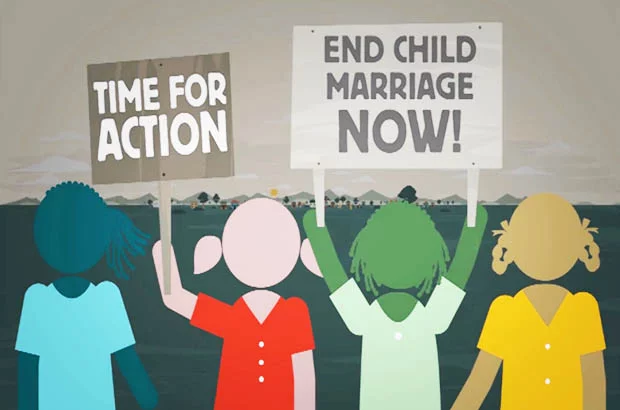Emma Watson, the forever Hermione Granger, recently gave an interview for the British Vogue’s December issue. It popped up on my YouTube feed as a video titled, ‘Emma Watson Talks Turning 30, Working With Meryl Streep, And Being Happily Single’. When I looked at that title, I was expecting the interview to be a sort of scintillating conversation about Hollywood, her life as an actor, and possible a yammer of ‘I am happy being single’. Now, could my expectations have been more off base?!
Right off the bat, the interview started off with Paris Lees (a journalist and transgender rights activist herself) cracking a joke and Emma laughing at it wholeheartedly, hands-clapping-on-the-thighs-legs-folded-on-the-couch like one would expect or imagine her to be in her own living room. It wasn’t the poised restrained laugh that is usually expected of women, especially women of a certain stature in the media. Right next, she compliments Paris on her selfie game on Instagram, saying Paris is “really good” at taking selfies, and subtly acknowledging that the camera-friendly star does sometimes get camera conscious herself. And this first minute of the interview set the tone for the next 29 minutes.
Within the next few minutes, Emma Watson talks about feeling the imposter syndrome when talking about feminism, reaching out to Gloria Steinem for more knowledge and guidance, taking flak for being a white feminist, and mental health in the world of social media.
Within the next few minutes, Emma Watson talks about feeling the imposter syndrome when talking about feminism, reaching out to Gloria Steinem for more knowledge and guidance, taking flak for being a white feminist, and mental health in the world of social media. While acknowledging that social media can be a space of incredible cruelty, she also stated that it helped her receive feedback about ‘privilege’ that perhaps no other medium could have.
While I had expected the interview to be something similar to the ’70 questions with blah blah star’ that we usually see online, Emma turned it onto a conversation about books and critical social issues. She talks about her realisation, sitting in a lecture hall at Brown University, that history is written from the perspective of who is writing it. She talks about the need to reform UK’s education system to include issues such as foreign affairs and involvement with slavery, stating that not talking about these issues is “deeply not okay”.
Possibly feeding into the bigger question of finding meaning in life, Emma states that her activism is what makes her feel alright about taking up the space she does as a star – “…it’s gotten to the point that without [activism] it just renders everything else meaningless. It just feels empty otherwise.” Emma Watson also talks about her need to be connected to artists who are indulging in the space of activism, and to bring out the stories of everyone.
Not only did this come as an assurance to my 25-year-old self that I don’t have to settle down in the next five years, it also reminded me that life is not about measuring up to other people’s benchmarks, but about living up to your own.
On the question of turning 30, Emma highlights the stress and anxiety that possibly we all feel whenever a big birthday number is approaching. She talks about the subliminal messaging around settling down in life by the time you’re 30—building a home, having a husband, having a baby, and having a “secure stable place in your career”. Not only did this come as an assurance to my 25-year-old self that I don’t have to settle down in the next five years, it also reminded me that life is not about measuring up to other people’s benchmarks, but about living up to your own.
Also read: All The Single Mothers, Now Put Your Hands Up!
Emma then broached another unexpected topic—therapy. She talks about having to go through therapy in order to deal with the guilt of not always enjoying the limelight she receives, among other things. Unlike what is expected of a star, she acknowledges that she doesn’t always enjoy being in the spotlight. “I had no idea what I was getting myself into. I literally got picked out of a lineup in my school gym, that wasn’t even an acting school,” she says, explaining what bizarre journey the last 20 years of her life have been.
What also made an impression on me was the language of the interview. Instead of light dumbed-down language and vocabulary that is expected of the popular media, Emma used the language I hear around me, in intellectual discussions. She wasn’t afraid to use words like ‘critical thinking’, ‘inclusion’, and ‘empathy’.
Another thing that struck a chord with me was Emma’s familiarity with the interviewer Paris Lees. Not only did Emma give Paris the space to share her thoughts, she actually asked Paris questions and made relatable comparisons. While the focus of the interview was Emma, as was supposed to be, it was actually a conversation with Paris being an equal participant and Emma displaying that she sees Paris as an equal participant and not a one-off interviewer.
Also read: Being 33 And Single Is Not A Crime: Unpacking Criticism Against Unmarried Women
There are various highlights in the rest of the interview that I could go into the details of. Some of these include Emma taking a stand for trans people to be allowed to use the washroom of their choice, talking about the need to make everyone feel included and the effects of not being included, the diversity of feminist choices, and dating in the world of Tinder. However, I’m choosing not to, to encourage you to watch the interview for yourself here.
Rupal Bhandari is a 25 year old feminist, trying to find the best way to make a relevant contribution to the world. She has a Master’s degree in English Literature from Hindu College. When not buried in her laptop at work studying the impact technology is having on businesses, she spends her time reading, writing, travelling, and discovering the best food. You can find her on Facebook and Instagram.
Featured Image Source: Bold Sky




